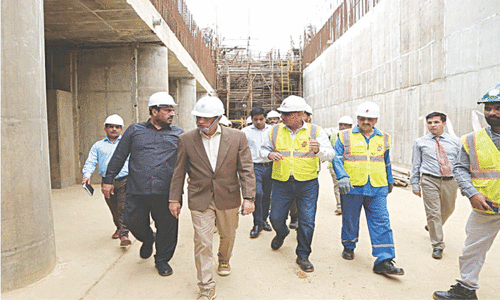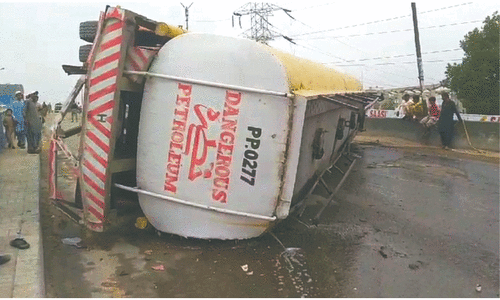KARACHI: Basic services have not been rehabilitated to the level of public satisfaction almost one and a half years after the devastating floods in Sindh.
Millions of people are still deprived of drinking water, housing, education and health services and there are areas where water is still standing, says a study launched on Thursday by Sindh Human Rights Commission (SHRC) at a local hotel.
Titled Rights of People and State of Flood Rehabilitation in Sindh, the report was conducted through a series of interactions with communities in three districts, that is, Khairpur Mirs, Dadu and Mirpurkhas.
According to the report, Pakistan witnessed an apocalyptic flood in 2022 with devastating consequences. Sindh was the worst affected province. Loss of life, private property and public infrastructure and services were reported from 24 districts of Sindh.
“The government of Sindh engaged development partners to mobilise resources to reconstruct damaged public service infrastructure including houses, water supply schemes, schools and health facilities. However, the pace of the rehabilitation process is slow, causing anxiety and distress among millions of flood affectees,” it says.
Polluted drinking water
The report highlights that communities were not resilient enough and government departments were not prepared to deal with such a scale of disaster. Communities had to abandon their inundated houses and villages to seek refuge at nearest elevated dry spots. Government couldn’t extend timely support in evacuation and relief at the initial stage.
“Some communities complained that relief support was politically influenced and many people were not able to receive it. Neglected affectees received some support from INGOs, NGOs and philanthropists.
“Evacuation and relief process did not provide preferred attention to vulnerable segments of communities e.g. persons with disabilities, lactating mothers, pregnant women, elderly people etc.”
There are areas where flood water is still standing. Lack of drainage of flood water was noticed as a major challenge. Natural waterways are encroached, and this has been identified as a major cause of flooding and slow evacuation of flood water.
The flood, the report points out, caused more hardships for menstruating, pregnant and lactating women due to lack of privacy and sanitation facilities.
All communities, the paper says, invariably complained of polluted drinking water since groundwater had become contaminated in most of the flood affected areas due to stagnant pools of water on the surface.
Published in Dawn, June 7th, 2024














































Dear visitor, the comments section is undergoing an overhaul and will return soon.